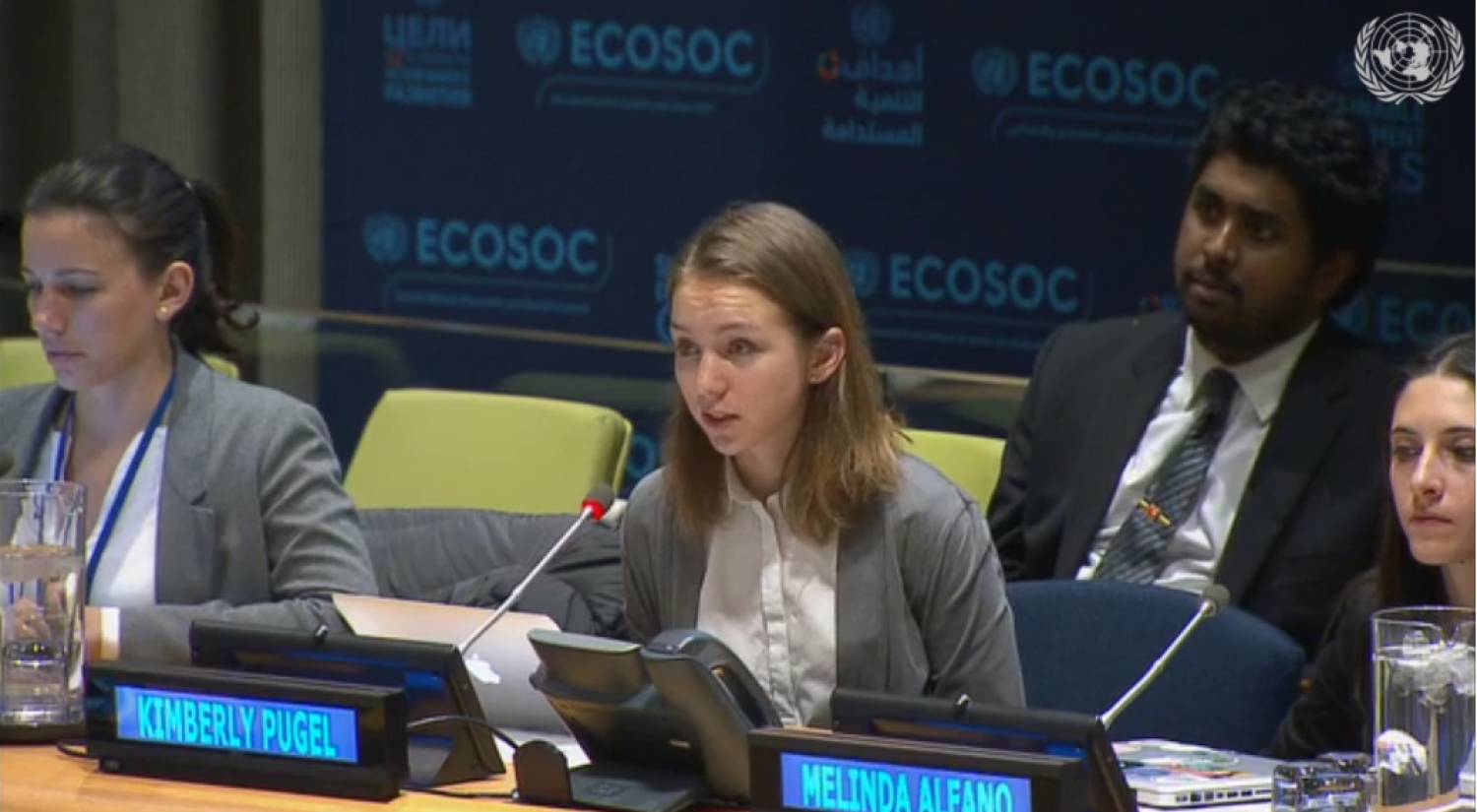Student explores science-policy interface with U.N. role

Graduate student Kimmy Pugel is headed to the United Nations in June to help the General Assembly with their review of five of the group’s Sustainable Development Goals (SDGs).
As a part of the U.N. Major Group for Children and Youth (MGCY), Pugel serves as the Technology Focal Point for the Financing for Development Working Group.
“My role centers around the science-policy interface, gathering and generating knowledge about science, technology and innovation with young people (people under 35) to inform evidence-based policy on the SDGs,” she said.
Pugel is especially interested in SDG 6, which calls for ensuring “access to water and sanitation for all,” which is the focus of her doctoral work with Associate Professor Amy Javernick-Will.
In January, she presented at the U.N. Economic and Social Council Youth Forum, which convened more than 600 youth delegates and organizations from around the world. She worked with eight other U.N. agencies to run a session on SDG 17, specifically on using science, technology and innovation to facilitate youth engagement, development of skills and resilience.
“I presented on the structures within the U.N. designed to allow inputs on science and technology policy, and then facilitated an hour-long discussion of over 100 people on how youth can engage with and inform science and technology policy,” she explained. “I took the recommendations from my sub-group and two other sub-groups, prepared four overarching recommendations, then presented them to the U.N. ECOSOC president and the entire conference at the plenary session.”
Now, Pugel is prepping for the MGCY’s participation in the June’s Science, Technology and Innovation Multi-Stakeholder Forum, where industry, Major Groups and other organizations come together to provide input to the General Assembly’s High Level Political Forum. Her job includes gathering youth input on the goals under review, preparing position papers and policy briefs, and organizing side events.
“As an engineer, I could dive deep into how a certain science or technology works, but there is an entire other world of how that science and tech is turned into a movement, an institution, a policy framework, and supported by external funds,” Pugel said. “This work allows me to not just peek into that other world, but actually work within it -- and that's exhilarating.”


